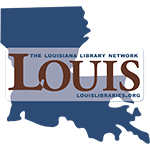Public Librarian Cohort Train the Trainer
Topic outline
-
Description:
The Librarian Cohort is a spring learning community and delivered in synchronously and asynchronously online. We will continue to use this space throughout all phases of the grant for information and resource sharing.
This learning community is intended to provide train-the-trainer instruction. Collectively, we will explore open education, open educational resources, textbook publishing, and related issues, technology, and impacts in terms of curriculum and teaching and learning. Through this train-the-train, you will gain the confidence and capacity teaching the materials to your faculty cohort.
Cohort Goals:
- Create a community by connecting librarians from across the state in a supportive learning environment,
- Provide introduction to open education and to the infrastructure for open publishing (Pressbooks) and open course design (Moodle template) and corresponding tools and skills,
- Provide professional development to enable librarian leaders to apply their expertise and iterate on this training to share information to their faculty cohorts effectively, respond to participant questions, and lead work.
Instructional Technologies:
Through this experience, participants will use Google Drive, Moodle, Pressbooks, Zoom, and OER repositories.
Schedule:
Our cohort activity is structured into two-week module. The specifics of each module will be shared via this Moodle, with activities/readings to be completed prior to that module's Zoom meeting. This course and its contents are licensed under a Creative Commons Attribution 4.0 International License by LOUIS: The Louisiana Library Network, except where otherwise noted.
This course and its contents are licensed under a Creative Commons Attribution 4.0 International License by LOUIS: The Louisiana Library Network, except where otherwise noted.
-

Welcome to Module 2! Now that we have gained a deeper sense of our librarian leader cohort and of the project itself in Module 1, we will dive more into the materials we will use for the leading faculty training.
Photo by Lindsay Henwood on Unsplash.
-
- Read Part I: Introduction:
- 1. Defining Open Textbooks
- 2. Understanding Open Licenses (skim/skip the Mixing and Matching paragraph as it is duplicated and expanded upon in the Remixing Content reading below)
- Read Part I: Introduction:
-
- Read Part II: Copyright
- Copyright and Open Licensing and Creative Commons Licenses
- (Just a note that this chapter states in the section on fair use "We do not recommend using fully copyrighted works in OER projects without written permission from the work’s rightsholder." The Code of Best Practices in Fair Use for OER outlines fair use contexts for using copyrighted materials in OER.)
- Read Part III: Finding OER
- Evaluating OER, Finding Open Content, Repositories and Search Tools, Ancillary Content, and OER in Print
-
From the readings, be prepared to share at least one takeaway and one question at our next meeting.
-
Go to the Open Textbooks Library, OASIS, LOUIS OER Commons, or another repository you know of or that was mentioned in Finding Open Material.
- Complete a couple of searches for materials that relate to the subject area for your course based on your understanding of that course.
- Note which repository/repositories you searched.
- Note the availability of materials in the subject area based on your initial findings.
- Review 2-3 specific materials, thinking about the aspects to consider from Evaluating OER or using the Evaluating OER Checklist (written for instructors) from the reading.
- Note the items licenses and what these licenses allow/prevent.
